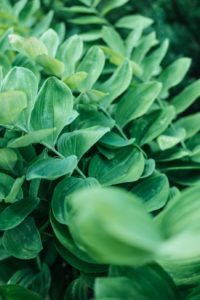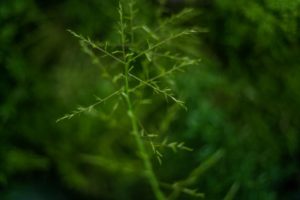Garden pests can put a damper on all the hard work we put into gardening. No gardener wants to see garden bugs wreaking havoc on thriving plants, munching away on leaves and causing unwelcome destruction. Luckily, there are ways to prevent these pesky garden pests with organic pesticides. As opposed to store bought pesticides that contain chemicals and can be highly toxic to both our plants and humans, keeping garden pests away with the following organic pesticides is the way to go. Get familiar with these common destructive garden pests and read on to find solutions as to how to prevent them from wreaking havoc on our crops.
pests away with the following organic pesticides is the way to go. Get familiar with these common destructive garden pests and read on to find solutions as to how to prevent them from wreaking havoc on our crops.
Gardening Pests
Aphids
Also known as green flies or black flies, aphids are destructive garden bugs that target a broad range of plants. If you notice yellow or distorted leaves, a sticky, black matter and the fact that your plants are no longer growing like they used to, aphids are likely to blame. To prevent or get rid of aphids if they’ve already taken over, organic pesticides include spraying your plants with water and a homemade garlic repellent.
Caterpillars
Caterpillars can wreak havoc in your garden by chewing up leaves. To distinguish between caterpillars and other harmful garden bugs, look for jagged or scalloped leaf edges. The best method to get rid of destructive garden pests like caterpillars organically, without sacrificing the rest of your plants, is to hand pick them out wearing gloves or use floating row covers.
Slugs
Garden slugs make themselves known by leaving a slimy residue in their trail. They also leave their mark by chewing holes into the leaves of your hard-earned plants. To prevent these pesky garden bugs from destroying your garden, trick the garden slugs by setting up traps for them to climb into. Place burlap bags or boards in the garden when it turns dark. By morning, the slugs will all be collected in one easy place for you to collect and dispose of.
Spider Mites
Spider mites are so miniscule that the naked eye can barely see them, but don’t let their size fool you. Spider mites can do a lot of damage in a short amount of time by sucking the materials on plants that are needed to stay healthy. Their damage will appear as small brown or yellow dots on plant leaves and if there are enough of them, the plant will stop growing altogether. There couldn’t be an easier solution; spray water from the hose directly onto your plants and that should be enough force to get rid of these small garden pests. Natural predators of spider mites include lady bugs and lacewings, so releasing these types of bugs into your garden should do the trick as well.
Cutworms
Cutworms, also known as moth larvae, will hide during the daylight hours and come out to do their destructive feeding at night. Cutworms will  damage gardens by cutting stems in half, or chew through stems at the ground level. Cutworms prey on seedlings and young transplants. In order to prevent the damage caused by cutworms, apply cutwork collars on transplants or hand pick them out from below the surface of the soil.
damage gardens by cutting stems in half, or chew through stems at the ground level. Cutworms prey on seedlings and young transplants. In order to prevent the damage caused by cutworms, apply cutwork collars on transplants or hand pick them out from below the surface of the soil.
Flea Beetles
Flea beetles are the most damaging to young plants, considering their larvae feeds on the roots of plants. Flea beetles are small and dark in color, and they’re a unique garden pest in that they will jump like a flea when disturbed. Adult flea beetles will chew small holes into leaves, but to prevent the damage they cause, apply floating row covers or spray a homemade garlic spray onto your plants to deter them.
Garden Savvy allows you to browse and compare thousands of verified vendors to see prices, inventory, and more! All with real, honest reviews from customers.
Recent Posts
- Smart Gardening: How Technology Is Revolutionizing Horticulture
- Understanding Gardening Zones: What You Need to Know
- The Right Tools For Your Gardening And Landscaping Needs
- Maximizing Your Harvest: Square Foot Gardening Chart for Beginners
- Holiday Garden Scents: Plants for Natural Aromatherapy in Your Home






